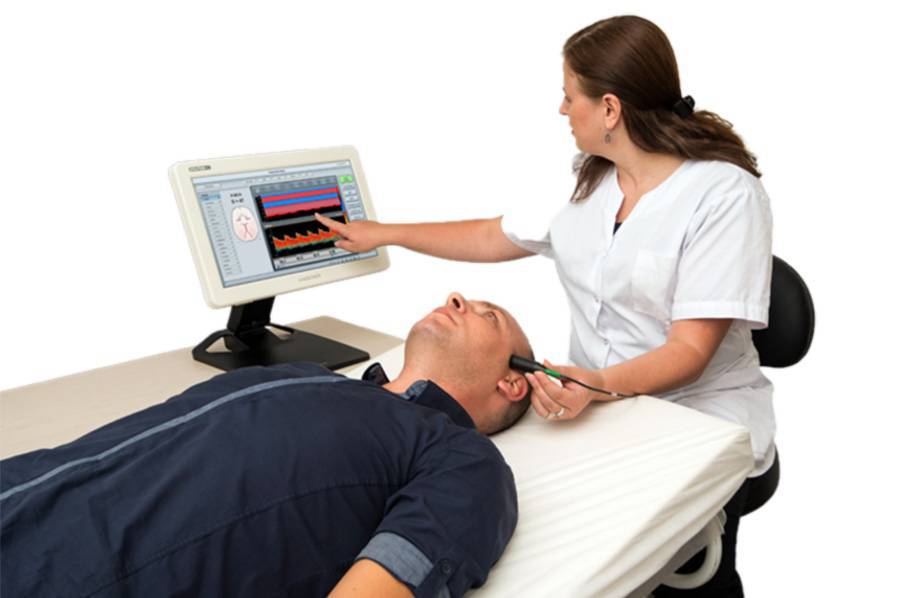Transcranial Doppler (TCD) ultrasound measures cerebrovascular function in real time and is non-invasive. TCD can be used to assess relative flow changes in the basilar arteries of the brain, diagnose focal stenosis, and detect embolism signals in the arteries. TCD can also be used to assess the physiological health of a specific vascular area by measuring blood flow response to changes in blood pressure (brain autoregulation), tidal (cerebrovascular activity), or cognitive and motor activation (neurovascular coupling or functional congestion).
TCD has proven to be useful in the clinical diagnosis of several cerebrovascular disorders, including acute ischemic stroke, vasospasm, subarachnoid haemorrhage, sickle cell disease, and brain death. This imaging modality’s clinical indications and research applications are still evolving.
Transcranial Doppler (TCD) ultrasound provides a low-cost, non-invasive, real-time measurement of cerebral blood flow and hemodynamic characteristics in the brain’s basilar arteries. These physiological measurements supplement the structural data obtained from the various existing vascular imaging modes. TCD is the most practical method for tracking vascular changes in response to interventions in acute bedside stroke. Given the ease of use of this tool as a diagnostic modality, its clinical and research applications in many cases of cerebrovascular disorders will grow.



